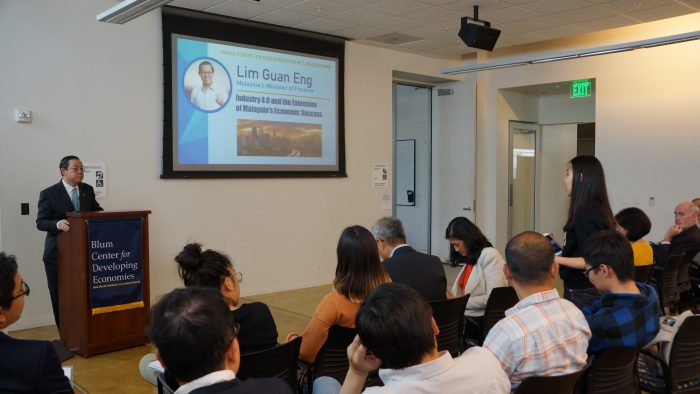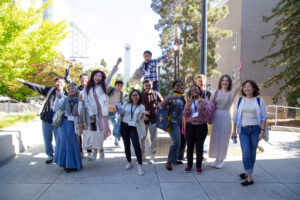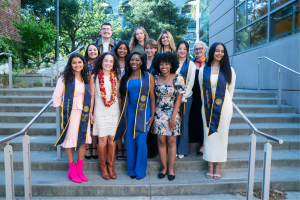By invitation of the AMENA Center for Entrepreneurship and Development, Lim Guan Eng, Minister of Finance for Malaysia, addressed UC Berkeley students and faculty on the topic of “Industry 4.0 and the Extension of Malaysia’s Economic Success” at Blum Hall on October 18.
“It is always energizing to come to the San Francisco Bay Area and its universities,” said Eng. “There is much to learn here.”

Although Malaysia had considerable success industrializing in the 1970s and was among the so-called Asian Tiger Cub Economies in the 1990s, Eng said that since the early 2000s his country’s economy, particularly its electronics sector, has “hollowed out” due to its inability to compete with China.
“We are seeing a premature de-industrialization in the electronics sector,” stated Eng, who noted that manufacturing in Malaysia declined to 22 percent in 2018 from 30 percent in the 2000s.
Eng said other economic challenges include the US-China trade war and the financial impact of Malaysia’s 1MDB scandal, the latter of which involved a state-owned investment fund that was supposed to attract foreign investment and instead led to $25 billion of irregular financial transactions.
“How do we overcome the great challenge of turning around Malaysia from a global kleptocracy to a normal, boring democracy?” asked Eng, who has a long history in government. He was elected to Malaysia’s Parliament in 1986 and has served as Secretary-General of the multiracial, center-left Democratic Action Party since 2004.
Eng said that the US-China trade war is upending the economy of Malaysia and other developing nations in Southeast Asia, “permanently reorienting the global supply chain. ”
However, Eng sees this reorientation as an opportunity to spur investment in Malaysia and catalyze its re-industrialization, particularly in the digital sector.
“Various firms today are attempting to circumvent rising tariffs imposed by China and the United States and shifting their manufacturing bases elsewhere,” he said. “Southeast Asian countries, including Malaysia, have begun to enjoy increased foreign investment resulting from trade and investment diversion caused by the trade war.”
Eng reported that foreign investment across all sectors in Malaysia has roughly doubled from $6 billion in the first half of 2018 to $11.8 billion during the first half of this year. A majority of the investment was in the manufacturing sector. Among the results is an increasing GDP growth, up to 4.9 percent in the second quarter of 2019 from 4.5 percent in the previous quarter.
Yet digitalization, not manufacturing, is at the core of the 2020 Malaysian Budget and central to what Eng calls “Industry 4.0.”
“Unlike 10 to 40 years ago, when industrialization required an ample supply of skilled workers, good physical infrastructure, as well as a set of reliable consistent rule of law, there is a new dimension that needs to be considered today,” he declared. “It is about data and its uses.”
Malaysia has identified five sectors–electronics, machinery, chemical products, medical devices, and aerospace–in which to make its digital investments. Part of the Industry 4.0 plan is a $5.2 billion investment in digital connectivity, with the goal of achieving 5G high-speed Internet throughout the nation by 2023.
Growth incentives for Malaysia’s aspiration to become a digital and entrepreneurial state include: $5 billion in investment over five years to small and medium enterprises, large local companies, and multinationals; a regulatory framework for virtual banking by 2020; and $1.6 billion over five years to develop 350,000 jobs for Malysian youth, unemployed people, and women.
“The digital economy must be inclusive–for the many, not the few,” said Eng.




